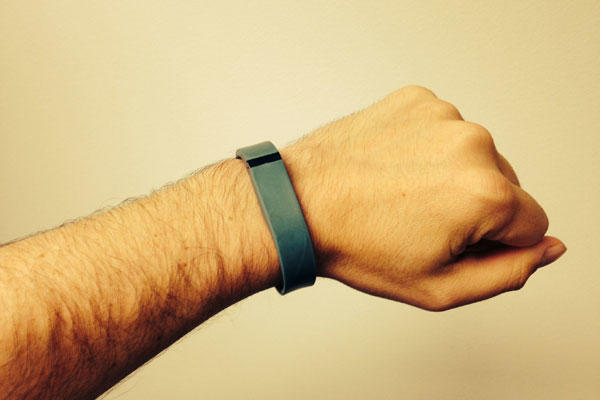The Army is experimenting with a fitness program that issues FitBit Flex wrist bands to soldiers to help them get in shape.
Called the "Performance Triad," the program focuses on good nutrition, activity levels and getting enough sleep. Army officials have launched the pilot program at Joint Base Lewis-McChord, Wash., Fort Bragg, N.C. and Fort Bliss, Texas.
Soldiers are issued a FitBit Flex wrist band which tracks steps, distance, calories burned and sleep. The data is then uploaded via Bluetooth to software on the soldier's personal computer or smartphone where he can track his progress.
The health and wellness campaign aims to help soldiers and family members increase their overall health by focusing on total mind and body care instead of solely diet, Army health officials said Tuesday at the Association of the U.S. Army's Meeting and Exposition in Washington D.C.
"This is not about dieting," Army Surgeon General Lt. Gen. Patricia Horoho said. "This is looking at improving their performance to be a better soldier, to be a better spouse, to be a better person."
About 2,200 soldiers are taking part in the pilot program across the Army. The pilot is set to last about 180 days.
FitBit Flex bands retail for $99 each, according to the company's website.
Spouses and family members will not be issued wrist bands. However, they can take part in the triad training, Horoho said.
"We can't make it mandatory for families but they can be included in the training," Horoho told Military.com. "Our team is taking the core capabilities and asking how we can push that out across the whole military."
Defense Department officials said focusing on the health of the family is key to making sure soldiers stay healthy.
"With any prevention, be it mental or physical health, you want to treat the family," said Rosemary Williams, deputy assistant secretary of defense for military community and family policy. "While your servicemember is trying to stay fit, why not incorporate the whole family for greater impact? It's popular science."
The DoD annually spends $1.5 billion treating obesity-related health problems, Williams said. Health programs like the Army's triad, or similar initiatives in the other services, should bring that cost down, officials said.
"It's going to be incremental, it's not going to be immediate -- it's over a period of time," she said. "Every program has its own initiatives to bring folks back from obesity and also get them healthier."
But rollout of the triad program Army wide could be a long time in coming thanks to budget uncertainties, Horoho said.
"Right now we're trying to be as aggressive as possible," Horoho said. "Part of the challenge is where we are with the financial situation. But the team is continuing to work forward because we know that this is exactly what is going to improve the health of our soldiers and families."



























